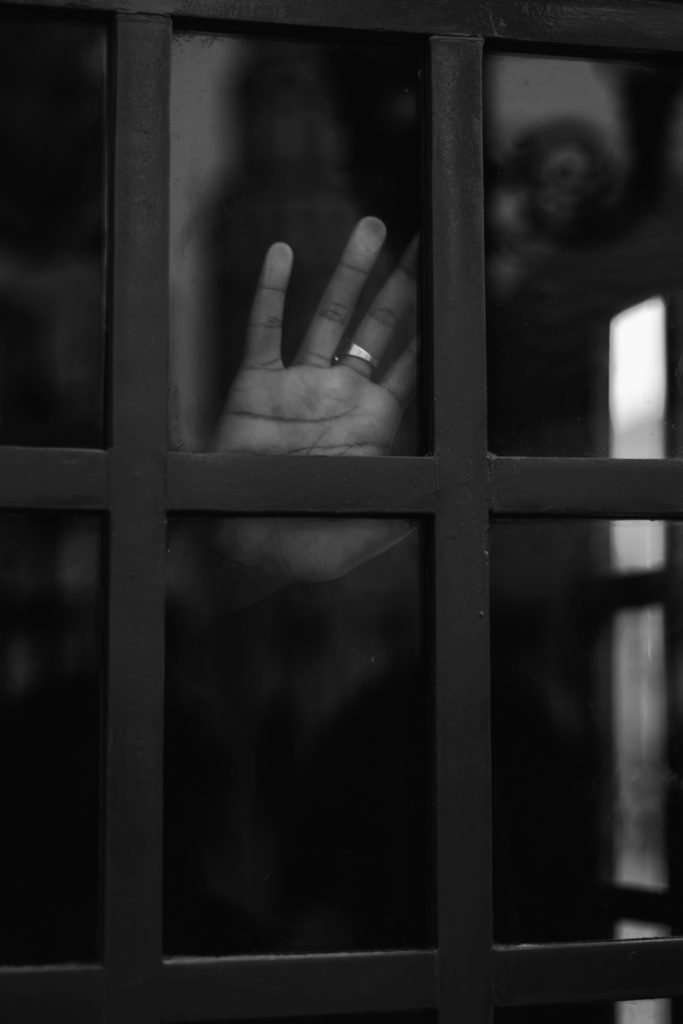How can one justify punishment? Whenever I experienced punishment from my parents, I always understood it as a lesson for my mistake. It taught me not to commit my mistake again, and made me strive to do better. Whenever I was given time to reflect on what I had done, I was encouraged to improve myself. As a child, I was already taught that I had the capability to strive for good.

Each and every person was born into this world with inherent dignity. This dignity that we possess acknowledges that we, as human beings, are built with an inclination to do good. Grave mistakes are made, however that does not mean that humans cannot change and improve, even if slightly. Whenever my parents punished me, they did not repeat the wrongdoing I had committed unto me, nor did they assume I was a lost cause. Now, I want to paint a different picture. If my parents saw a broken T.V. that could not be fixed, they could throw it out or recycle it. This is because they knew the T.V. could not change and improve itself, as it was static and lifeless. Let’s apply this comparison to capital punishment. Human beings are not objects that cannot change or simply be replaced. No matter what crime a person has committed, even if that includes taking away the life of another person, human beings cannot be allowed to decide whether a person should live or not.
One might justify capital punishment by saying the criminal has no remorse or intent to improve. If criminals do not value the lives of people, what is the difference when punishers do not value the lives of criminals? Are they not people as well? A crime should be responded to in a rightful, person-centered way. There are countless examples of the good that can come from a second chance, and there is one story from the Philippines of a former inmate who became a professor. He uses his jail experience as his motivation to change the Philippine justice system. The Inquirer.net published an article in 2019 that tells the story of Raymund Narag, who at twenty years old, was wrongly accused of murder, two counts of frustrated murder, and three counts of attempted murder. In 1995, he was imprisoned for seven years. Then, he was released in 2002, giving him a second chance. “Narag’s unjust time in jail has now become his beacon for improving the Philippine penal and justice system.”, the article states. Now, Narag is an author and assistant professor in the Department of Criminology and Criminal Justice at Southern Illinois University – Carbondale. He fights to advocate for reforms in the Philippine justice system to address its challenges. As the article mentions, “Narag lamented that the discourse now in the justice system is centered on punishment and not reform. Yet, his advocacy remains centered in a country that almost destroyed his future.” Narag seeks a better life for millions of Filipinos by giving a second chance to the justice system that almost ruined his life. Would this have happened if Narag was not given a second chance? By killing, we take away the chance for anything good to come from their existence, which means that we consider them as broken objects.

I refuse to reduce fellow Filipinos to beings who will not be given a chance to change, a chance to live. Mistakes are a part of life, but they are not the only part.
Our dignity grants us the inviolable right to live, a right which no one can take away. By trying to bring justice to a crime, capital punishment undermines what it means to be human. This grave offense is coming back to the Philippines. In the article, it was mentioned that “there are at least 10 bills pending in the Senate seeking the restoration of the death penalty as the maximum punishment for either heinous crimes or illegal-drug related offenses, or both.”
Is this what we want for our country? A place where human lives are treated like objects that can be disregarded when broken? No, I refuse to reduce fellow Filipinos to beings who will not be given a chance to change, a chance to live. Mistakes are a part of life, but they are not the only part. A person’s mistakes should not be the only things that define their existence. Stand with me in recognizing the dignity of every Filipino life, every human life. We must fight to reject the death penalty proposal to ensure that human lives will be valued for what they are. Humans are not objects. So now I ask, how can one justify a punishment that reduces a human being to an object?
Published: June 7, 2021
This piece was written by Alia Panlilio, a World Youth Alliance Certified Member from the Philippines.







